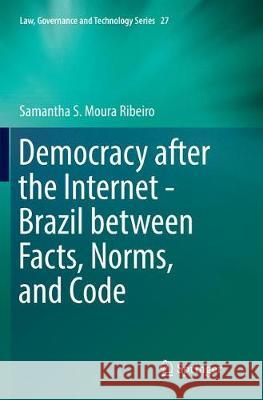Democracy After the Internet - Brazil Between Facts, Norms, and Code » książka
topmenu
Democracy After the Internet - Brazil Between Facts, Norms, and Code
ISBN-13: 9783319815558 / Angielski / Miękka / 2018 / 223 str.
Kategorie:
Kategorie BISAC:
Wydawca:
Springer
Seria wydawnicza:
Język:
Angielski
ISBN-13:
9783319815558
Rok wydania:
2018
Wydanie:
Softcover Repri
Ilość stron:
223
Waga:
0.34 kg
Wymiary:
23.39 x 15.6 x 1.3
Oprawa:
Miękka
Wolumenów:
01
Dodatkowe informacje:
Wydanie ilustrowane











